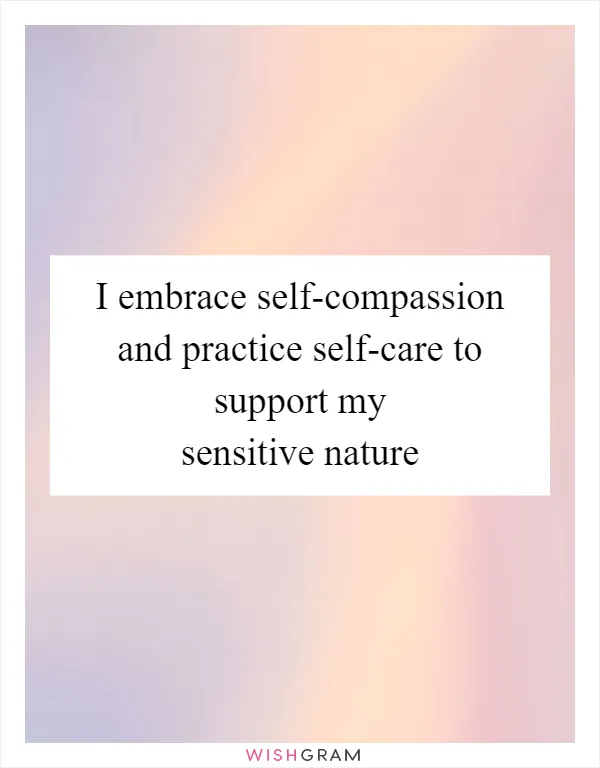I embrace self-compassion and practice self-care to support my sensitive nature
The affirmation "I embrace self-compassion and practice self-care to support my sensitive nature" can help you to take care of yourself and your emotional needs. Being sensitive can be a gift, but it can also be challenging, especially if you don't know how to manage your emotions. By embracing self-compassion and practicing self-care, you can learn to honor your sensitivity and use it to your advantage.
Self-compassion means treating yourself with kindness, understanding, and acceptance. It means acknowledging your feelings and needs without judgment or criticism. When you practice self-compassion, you are more likely to feel calm, centered, and confident. You are also more likely to be kind and compassionate towards others.
Self-care means taking care of your physical, emotional, and mental health. It means doing things that make you feel good, such as exercising, eating healthy, getting enough sleep, and spending time with loved ones. It also means setting boundaries and saying no to things that drain your energy or cause you stress.
If you are a sensitive person, you may be more prone to stress, anxiety, and overwhelm. You may also be more affected by other people's emotions and energy. That's why it's important to practice self-compassion and self-care on a regular basis. By doing so, you can reduce your stress levels, boost your mood, and improve your overall well-being.
Here are some tips for embracing self-compassion and practicing self-care:
1. Be kind to yourself. Treat yourself as you would treat a good friend. Speak to yourself with kindness and compassion, and avoid negative self-talk.
2. Practice mindfulness. Mindfulness is the practice of being present in the moment and observing your thoughts and feelings without judgment. It can help you to stay calm and centered, even in challenging situations.
3. Set boundaries. Learn to say no to things that don't serve you or that cause you stress. It's okay to prioritize your own needs and well-being.
4. Take care of your physical health. Exercise regularly, eat a healthy diet, and get enough sleep. Your physical health can have a big impact on your emotional well-being.
5. Connect with others. Spend time with people who support and uplift you. Surround yourself with positive energy and avoid toxic relationships.
Remember, self-compassion and self-care are not selfish or indulgent. They are essential for your well-being and happiness. By embracing these practices,
